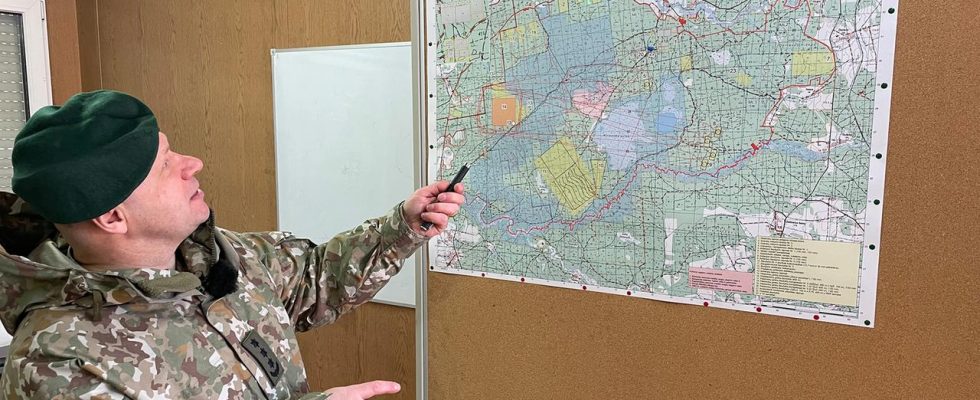european magazine
20 years ago Lithuania became part of the EU and NATO. Since Russia’s war against Ukraine, the country has continued to expand its border protection – and school children are also afraid of war.
Rolandas Griškonis rushes to the control room of the Vištytis border guard. His colleagues spotted a group of men on the screens. Five officers sit in the heart of the station and use small joysticks to control countless cameras along the border to the Russian exclave of Kaliningrad.
They observe every movement with concentration. After a quick look at the monitor, Griškonis gives the all-clear. “These men are registered,” he explains. “For repair work. That’s how we know they’re here.”
Almost 50 million euros invested
Behind the barbed wire are Russian army bases in Kaliningrad. Since Russia’s occupation of Crimea in 2014, Lithuania has made massive improvements on its side of the border. They have invested almost 50 million euros here alone – in new cameras, new fences and more staff. Griškonis has spent almost his entire professional life here. It has always remained peaceful all these years, he says.
Now he is no longer sure whether it will stay that way. “It hasn’t been particularly pleasant for us since Russia attacked Ukraine. But as border guards, we are prepared for anything.”
Rolandas Griškonis has spent almost his entire professional life near the border with Russia.
Border demarcation after the end of the USSR
A few hundred people once lived here in this small border town. Almost everyone has now moved away. Only a few remain – like Marijona Žukauskienė. As a child, the 86-year-old experienced occupation by German soldiers and then by the Red Army. She receives a visit every day from her neighbor Irena Mockevicene. When the two of them look out the kitchen window, they can see directly at the huge fence of the border system.
Their houses almost ended up on the other side, they say, when Lithuania became independent again after the collapse of the Soviet Union. “The Russians drew the border line in such a way that our houses were suddenly in Russia,” Irena remembers. “It was only after renegotiations that we became Lithuanian again. Thank God!”
Marijona Žukauskienė can look directly at the huge border fence from her kitchen window.
Concern about Russia is deeply rooted
Estonia, Latvia and Lithuania have been EU and NATO members for 20 years and are very proud of it. Classes begin at Taikos High School in Vilnius. Algis Bitautas is a history teacher here.
Today he wants to tell his sixth grade class more about Lithuania’s path westward. “I remember when I was around your age and Lithuania joined NATO,” explains the teacher. NATO membership is a great blessing for Lithuania.
Then they talk about the end of the Second World War and the period of Soviet occupation. There is a huge picture of three Lithuanian liberation fighters hanging in the classroom.
Concern about Russia is deeply rooted in the Baltics. Even with the children. “Russia invaded Ukraine and Ukraine is now trying to get the occupied territories back,” explains 12-year-old Rugile. “I can imagine the war getting even bigger.” Fear of war in the 6th grade.
The students Melita and Rugile fear that the war will become even bigger.
New Parade grounds in Rūdninkai
Lithuania wants to set an example in the east of the country. The small village of Rūdninkai is located not far from the border with Belarus. The Soviet military once trained here during the Cold War. Now NATO soldiers are supposed to come and also the Bundeswehr. They are hastily clearing huge areas of forest and laying new roads.
Commander Rimantas Jarmalavicius shows the area that has already been deforested and speaks of one of the largest training areas in the entire Baltics. “We’ll soon be practicing fighting off tanks here. There are training areas for a lot of soldiers, heavy machine guns, special training areas for tanks. The size is quite impressive.”
The parade ground is 70,000 hectares in size and is also intended to deter Moscow. Because whether in the West or here in the East – the fear of further Russian aggression is noticeable everywhere in Lithuania. Next year, thousands more NATO soldiers will train here to defend the country.
You can see these and other reports in the Europamagazin – on Sunday at 12.45 p.m. on Erste.

